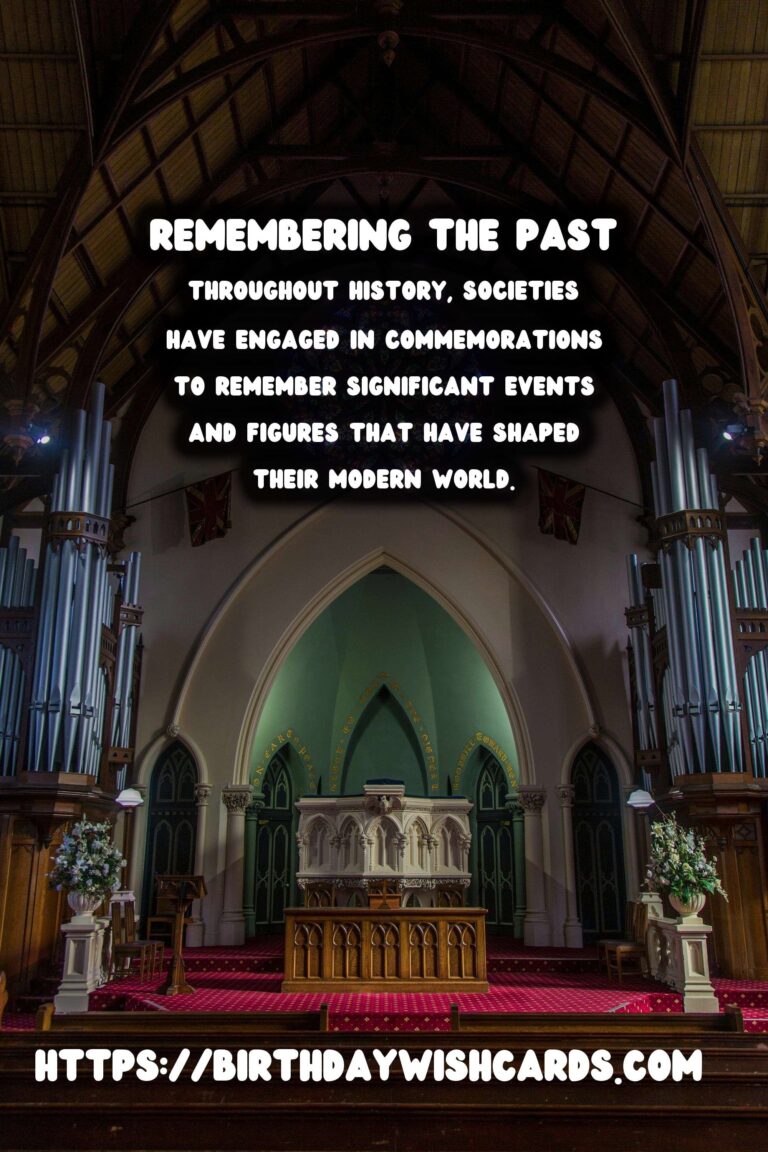
Throughout history, societies have engaged in commemorations to remember significant events and figures that have shaped their modern world. These commemorations serve as crucial tools in fostering understanding, unity, and ultimately, peace among nations and communities. This article delves into the various dimensions of historical commemorations and how they contribute to promoting peace.
The Significance of Historical Commemorations
Historical commemorations play an essential role in acknowledging the past while educating present and future generations. By recognizing important events from history, societies can offer tribute to the sacrifices made, ensure that the lessons of the past are not forgotten, and celebrate shared heritage. The commemoration of these events fosters a sense of collective identity and belonging, which is vital for societal cohesion and peace.
Educational Impact
One of the primary roles of historical commemorations is to educate the public about past events. Through commemorations, individuals gain awareness of the historical context, motivations, and consequences of pivotal moments in history. Educational programs and activities organized during these commemorations can combat ignorance, promote empathy, and encourage a critical understanding of history. This, in turn, supports peace-building by enabling informed discussions and eliminating misinterpretations that might lead to conflict.
Commemoration Fosters Understanding and Reconciliation
In communities and nations scarred by conflict, historical commemorations can play an instrumental role in reconciliation processes. By acknowledging past wrongdoings and honoring victims, societies can foster understanding and wipe the slate clean for dialogue and healing. These events provide platforms for truth-telling and mutual recognition, which are crucial for building trust and lasting peace among former adversaries.
Promoting Cultural and Social Unity
Commemorations serve as cultural touchstones, bringing together people from diverse backgrounds to celebrate shared history. They reinforce cultural identity by commemorating heritage and tradition, fostering unity in diversity. By participating in these shared experiences, individuals understand each other’s values and customs, nurturing harmony and reducing the likelihood of conflict based on cultural differences.
Challenges and Criticisms
While historical commemorations have numerous benefits, they are not without challenges. Criticisms often arise regarding whose perspective is represented and the potential for commemorations to reinforce divisions if not conducted inclusively. Addressing these issues requires a careful, balanced approach, ensuring that such events promote understanding and reconciliation rather than discord.
Conclusion
Historical commemorations are vital for promoting peace by reminding societies of the past and educating individuals about shared histories. They play a pivotal role in fostering reconciliation, understanding, cultural unity, and ultimately, the enduring peace that societies strive for. By thoughtfully commemorating history, we can build bridges across cultural and historical divides, ensuring a peaceful future rooted in the lessons of our common past.
Throughout history, societies have engaged in commemorations to remember significant events and figures that have shaped their modern world. One of the primary roles of historical commemorations is to educate the public about past events. 
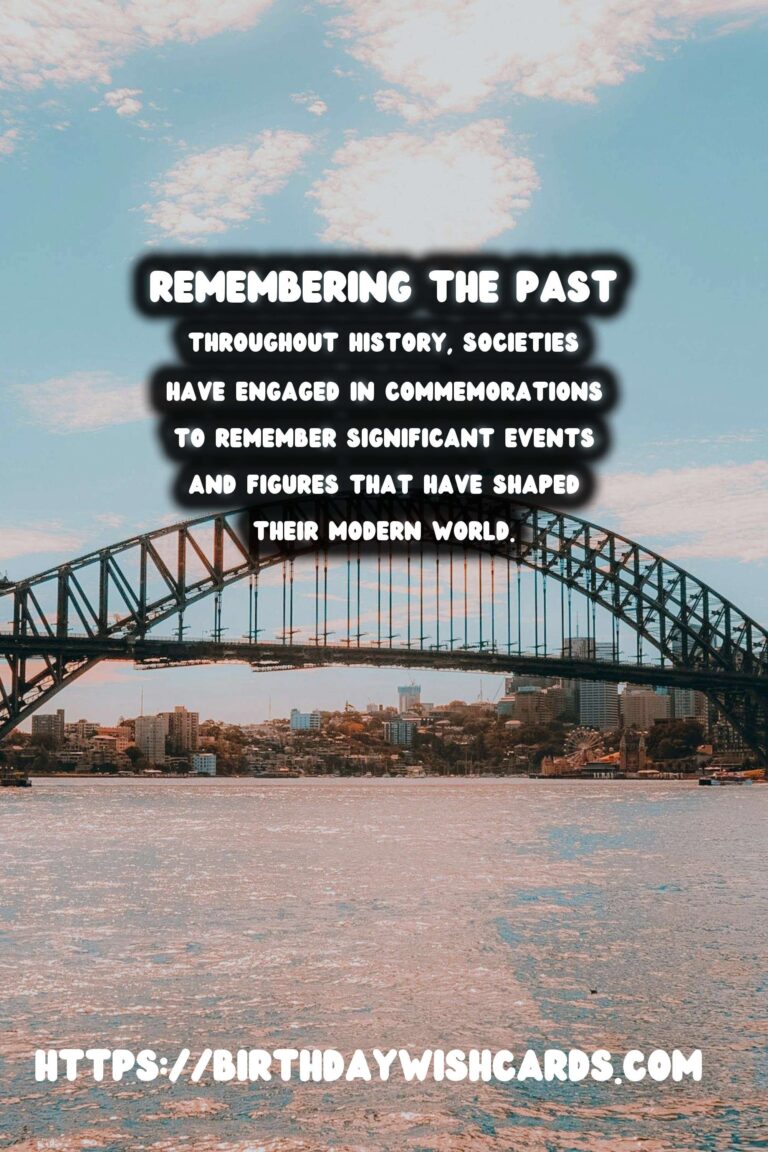
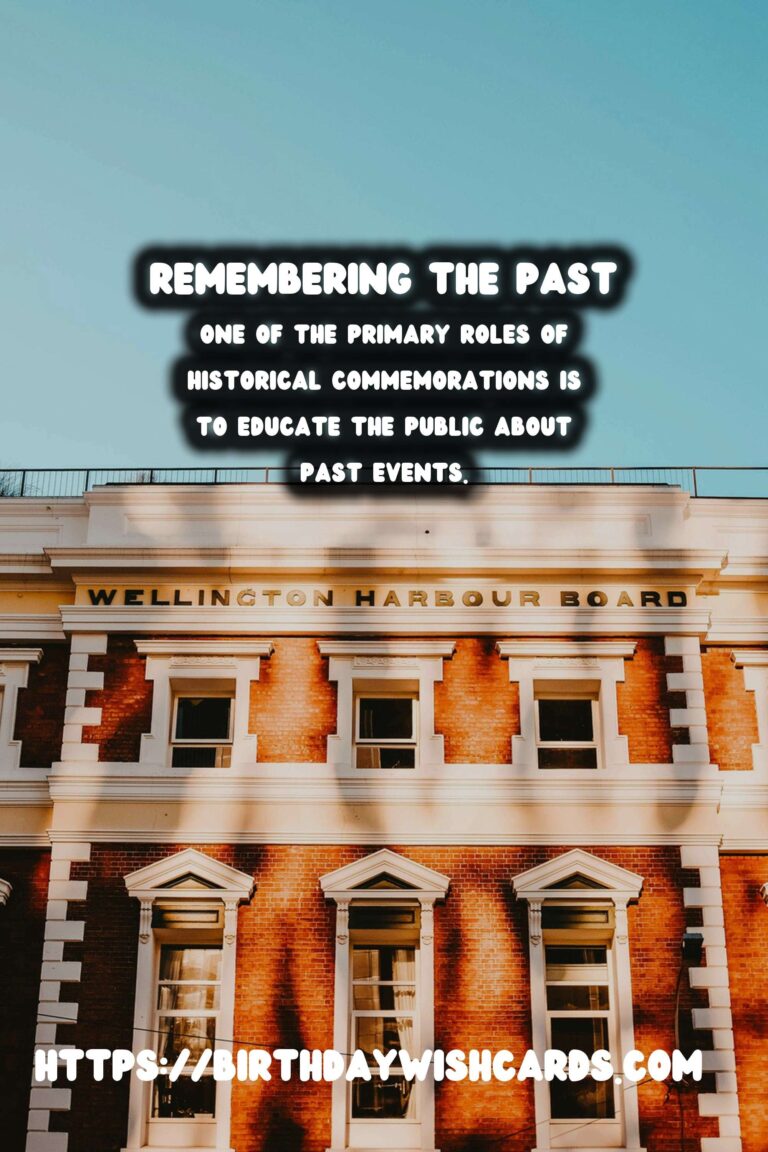
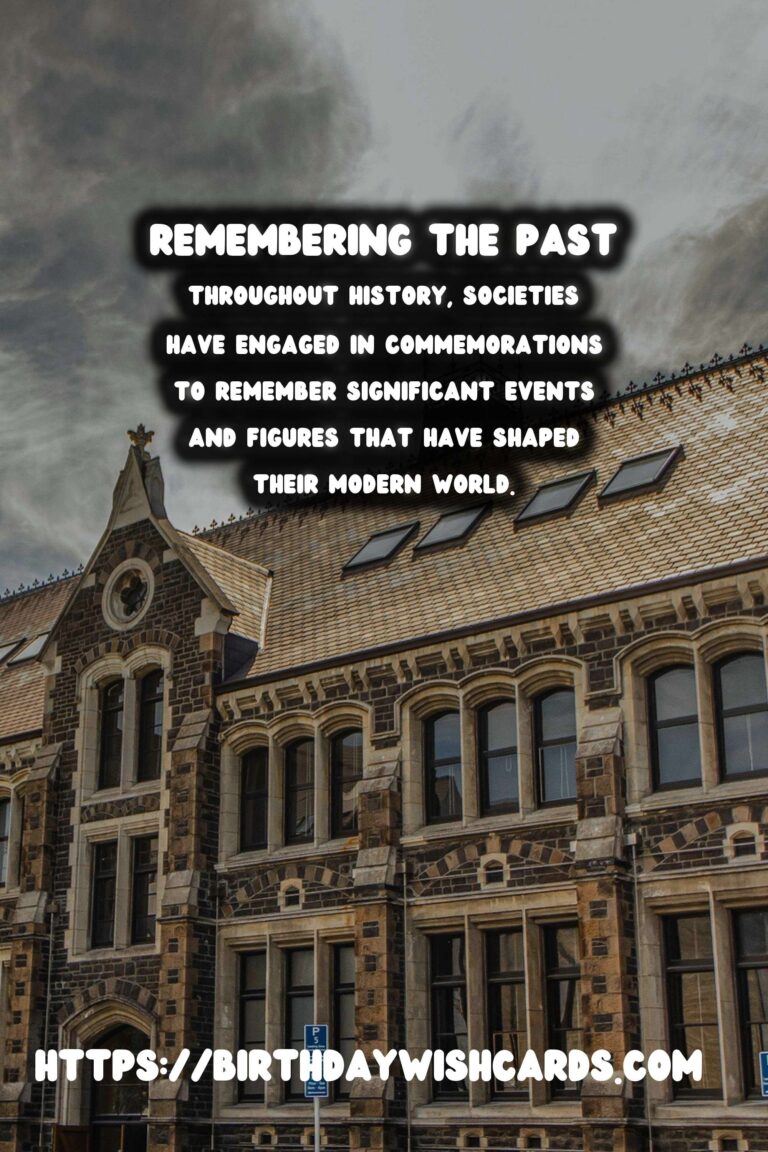
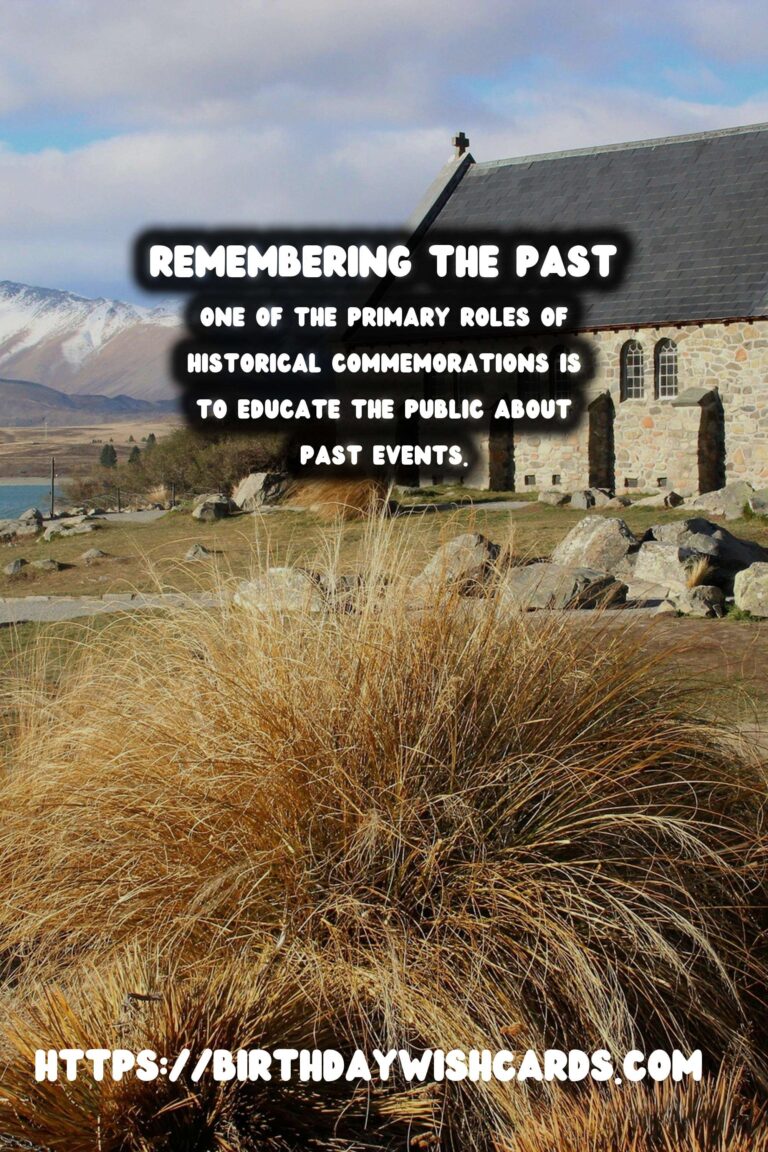
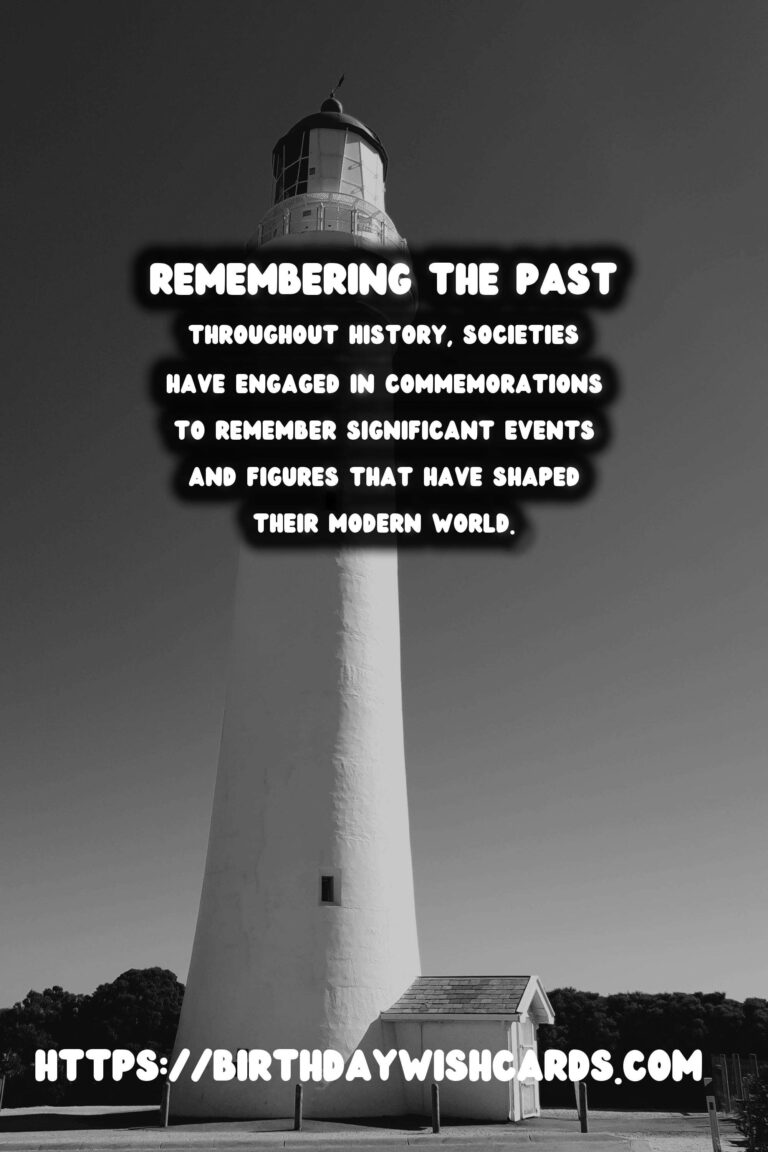
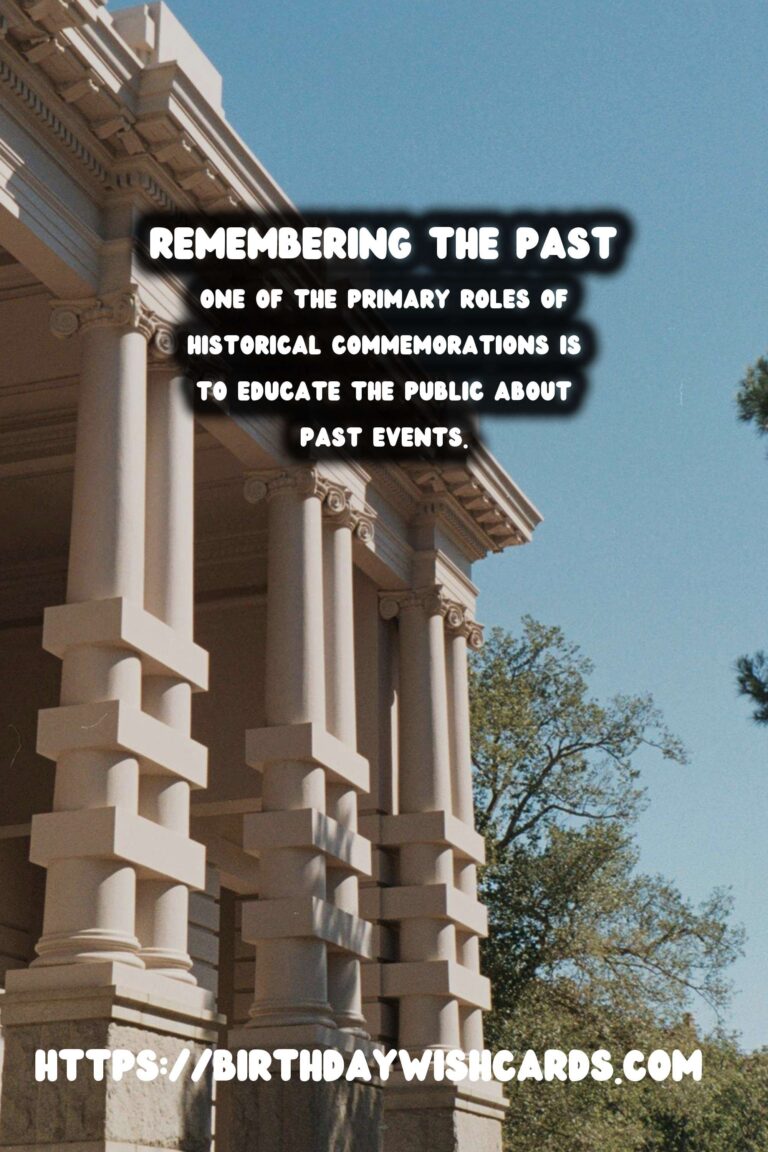
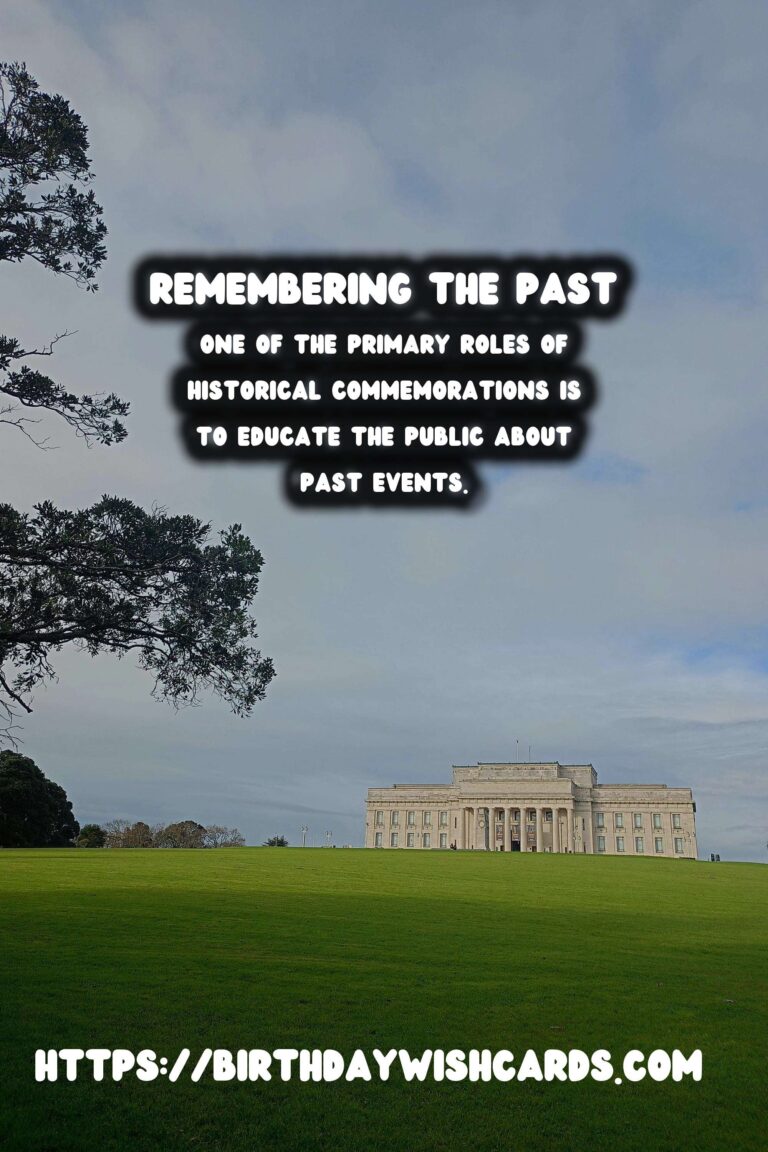
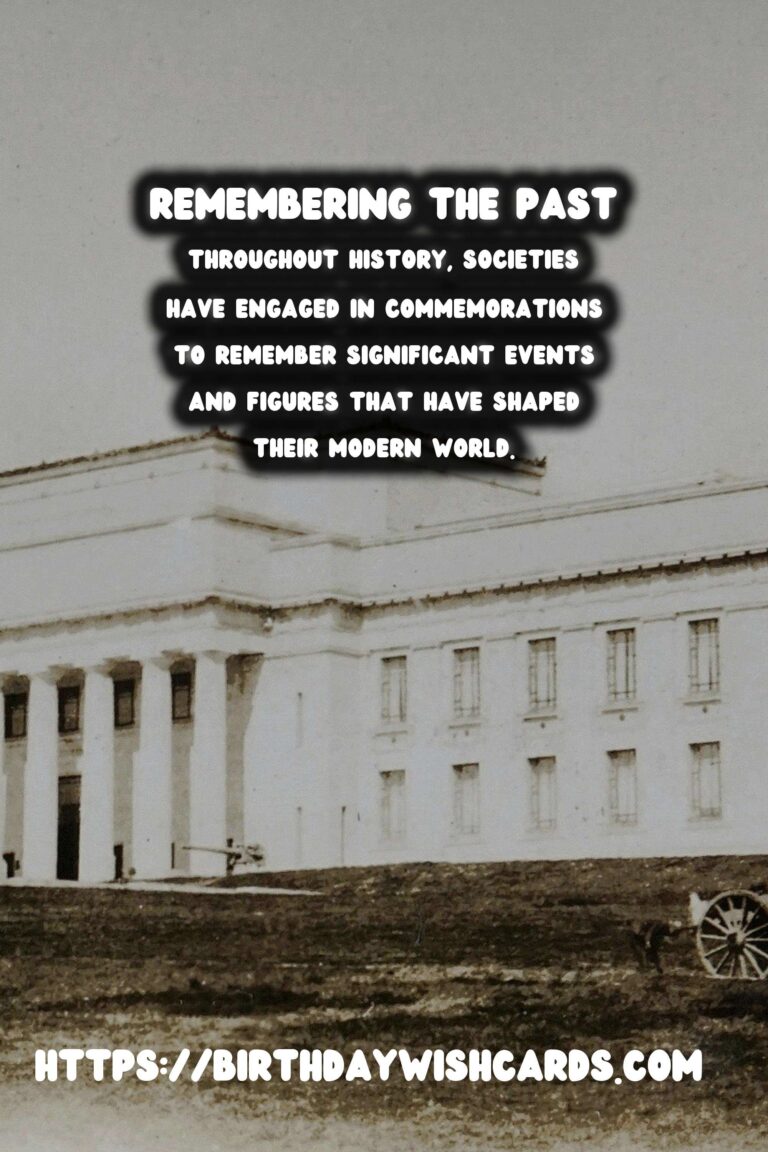
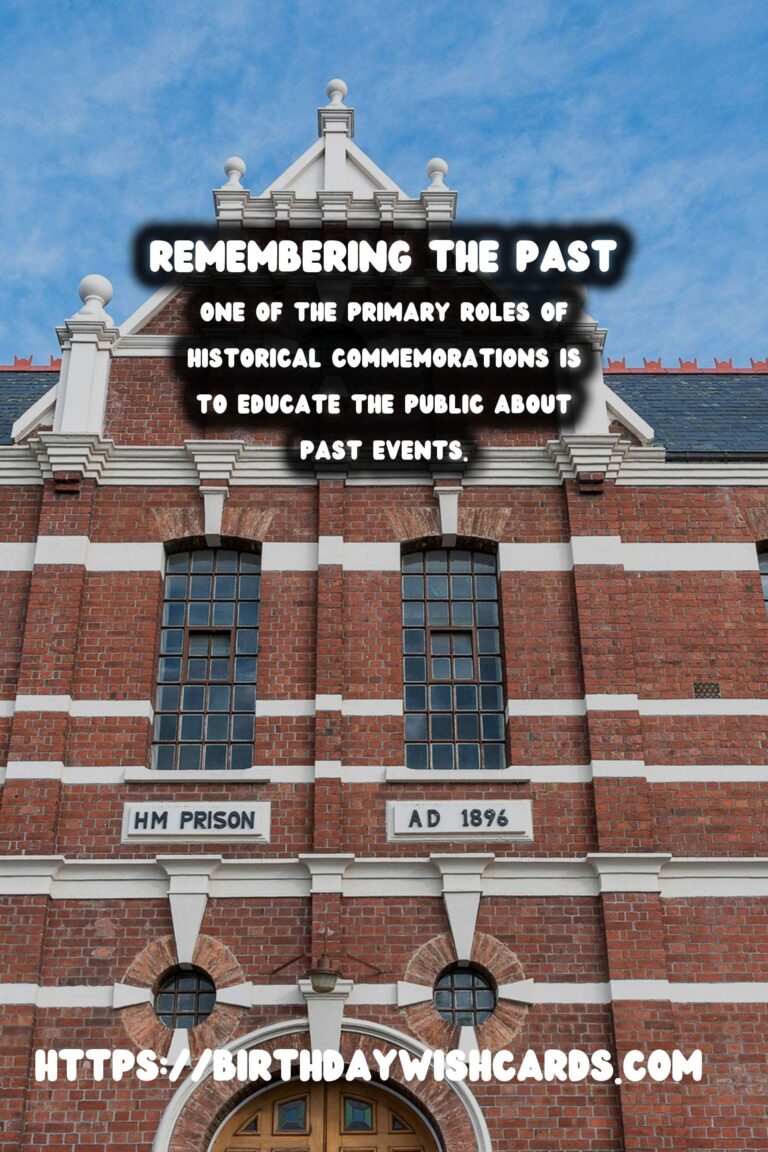
#HistoricalCommemorations #PeaceBuilding




